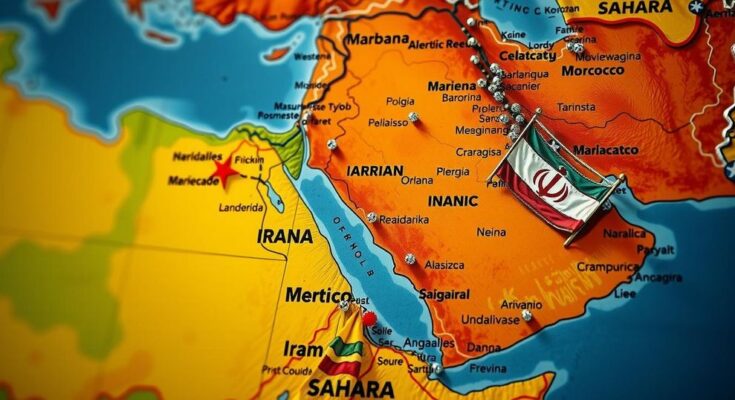President-elect Donald Trump’s administration has the potential to reinforce US-Morocco relations, specifically regarding the Western Sahara dispute. Trump’s prior support for Moroccan sovereignty, coupled with regional security threats from Iranian-backed groups, underscores the need for renewed US engagement. Strengthening these ties could mitigate instability and leverage economic opportunities, addressing both geopolitical and economic interests in North Africa.
The potential for strengthening US-Morocco relations under President-elect Donald Trump presents an opportunity to counteract Iranian influence in the Western Sahara and the broader Sahel region. Trump’s previous recognition of Moroccan sovereignty over Western Sahara in exchange for Morocco’s diplomatic relations with Israel laid the groundwork for future cooperation. In recent months, shifts in regional dynamics, spurred by conflicts such as the Gaza war, have complicated Morocco’s position, influencing public sentiment and the pursuit of normalization with Israel.
Moroccan officials seek a clear commitment from the incoming administration to reaffirm US support, contrasting the Biden administration’s more cautious approach that aimed to balance ties with Algeria. Amidst the intensified security threats posed by Iranian-backed groups in Western Sahara, Morocco is focused on solidifying alliances to prevent destabilization and economic marginalization. The proposed deepening of US-Moroccan relations could enable both parties to leverage economic benefits while simultaneously addressing geopolitical concerns.
Furthermore, the backdrop of escalating tensions in Western Sahara emphasizes the need for a unified stance against Iranian influence in the region. The recent military assistance and collaboration between Morocco and Israel illustrate a strategic realignment towards shared security objectives. The notion that Morocco’s normalization efforts were misinterpreted as opposition to Palestinian interests has added layers of complexity to its diplomatic narrative, prompting a reassessment of stability and national sentiment.
Therefore, strong US support for Morocco would not only address long-standing disputes but also present significant economic prospects through initiatives like the Atlantic Initiative, aimed at enhancing regional mobility and trade access. Coupled with reinvigorated military collaboration, this partnership could contribute to enhanced security and deter emerging threats.
In conclusion, it is imperative for the relocated US administration to prioritize its relationship with Morocco, particularly concerning Western Sahara. The upcoming administration holds a pivotal opportunity to forge constructive pathways for resolution, thus mitigating the influence of opposing forces in North Africa and enhancing strategic partnerships that benefit both the United States and Morocco.
President-elect Donald Trump’s victory stands poised to significantly influence US-Morocco relations, especially on the contentious issue of Western Sahara. Trump’s past acknowledgement of Morocco’s sovereignty over Western Sahara marks a critical pivot in US foreign policy that aligns with Morocco’s strategic interests. This policy shift is crucial, especially against the backdrop of increasing regional instability influenced by Iranian relations with the Polisario Front and related conflicts in the region. The complexities of Moroccan public sentiment regarding its normalization with Israel amid tensions also spotlight the need for careful navigation in diplomatic engagements.
In summary, reinforcing US-Morocco ties under the incoming Trump administration offers a strategic counterbalance to Iranian ambitions in North Africa and could lead to broader economic and security collaborations. With a focus on resolving the Western Sahara dispute, the United States is positioned to leverage significant geopolitical advantages while fostering regional stability. Engaging with Morocco effectively presents opportunities for enhanced trade and diplomatic relations, ultimately benefiting both nations and countering threats in the region.
Original Source: www.atlanticcouncil.org




